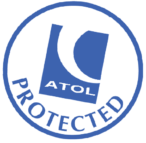Capital: Lima
Time zone: GMT – 5
Telephone services: Country Code: 51
Outgoing Code: 00
Emergency telephone numbers: All services – 011 / 5114.
Tourist information: Fondo de Promoción Turística (PROMPERU) Calle Uno Oeste, s/n Urb, Edificio Mitinci, 14th Floor, Corpac, Lima 27, Peru Tel: (1) 224 3142 or 224 3133 Fax: (1) 224 3408 or 224 3396. e-mail postmaster@promperu.gob.peru
Passport information: Valid passport required by all. Return Ticket Required. Requirements may change at short notice. Contact the embassy before departure.
Visa information: Refer to the embassy for the latest list of exceptions to those nationalities, which require visas.
Health information: Polio, Typhoid: Vaccination recommended
Malaria: Exists throughout the year in rural areas below 1500m in the Vivax variety. The Falciparum variety exists sporadically near national borders and where petroleum is being exploited. Resistance to chloroquine for the Falciparum variety has been reported.
Yellow Fever: A vaccination certificate is required by visitors over 6 months of age travelling from infected areas. Vaccination is strongly recommended to all travellers who plan to journey out of the urban areas.
Other Health Risks: Cholera, Rabies
Food & drink: Water is untreated and not safe to drink. – NOTE: Street vendor food is not recommended
Currency: Nuevo Sol = 100 centimos Exchange: Changing currency other than US$ can be difficult Credit cards have limited acceptance outside Lima. Exchanging travellers cheques can prove a complex process outside of Lima. US dollar cheques are recommended
ATM availability: Over 430 locations
Cost of living: Costs have increased dramatically in the last few years. Budget travellers can still find cheap accommodation, although the cities are much more expensive than rural areas.
Languages: Spanish and Quechua. English may also be spoken
Weather: Coastal areas: Summer is Oct – Apr which is the rainy season in the mountainous regions. May Sept is regarded as the best time to visit the mountains.
Electricity: 200 Volts AC 60 Hz
Post: Up to 2 weeks. Postal facilities are limited outside Lima.
Transport: RAIL: Can provide a scenic view of the landscape and sections are of the highest railway in the world. Connections however are limited. ROAD: A recently built highway connects Lima with other cities. NOTE: Landslides are common in the rainy season making for slow travel. A ‘Customs Duty Payment’ badge must be displayed at all times. BUS: ‘Greyhound’ type buses operate along the Pan-American highway TAXIS: Do not use meters so agree fare in advance. CAR HIRE: International companies have outlets in the major cities and Airport. DOCUMENTATION: IDP is required
Special information: Register with your Embassy when you arrive in Lima. Terrorist action may occur. Travel in groups is recommended. Street crime is common.

